-
•
•
112 responses
[A guest post by Professor David Earl Bohn, retired professor of political philosophy at Brigham Young University] Recently, the Maxwell Institute announced a significant change of course on its website—one that re-directs the Institute’s focus away from apologetics and Mormon-centered research and toward a more generic emphasis on religious scholarship. The “bloggernacle” had actually been abuzz about rumors of these developments since before they were officially confirmed. (For a non-exhaustive sample of related posts and articles see: here, here, here, here, here, here, here, here, here, here, here, and here). Cause for Concern Many of us who care deeply about Mormon research and scholarship have witnessed these developments unfold with some concern. … Read More
-
•
•
50 responses
Seismic changes at the Maxwell Institute have prompted reflective blog posts on the fate of FARMS and Mormon apologetics in general (The Rise and Fall of FARMS | The Legacy of FARMS | Explosive Tensions within MSR). My view: the FARMS approach has become outdated. Mormon apologetics will become more decentralized and more social as people (both LDS and non-LDS) turn to Google and Facebook rather than the bookstore, the library, or journals to get answers to their Mormon questions. Apologetics will therefore become more personal and more practical. People still want answers. Mormon.org, blogs, and Mormon Stories are the… Read More
-
•
•
9 responses
I posted the questions last week. It’s taken me much longer than I thought to hunt down my references/handouts/links, so I’m breaking the answers into two parts. 1) Nephi says several times that knowing “the things of the Jews” can help us understand Isaiah. Similarly, the “things of the Jews” can help us understand the Book of Morm on. Briefly explain two specific examples of “things of the Jews” that help us understand either Isaiah or the Book of Mormon. (4 pts.) We talked about lots of these in class. What’s interesting to me is immediately after declaring “the things… Read More
-
•
•
27 responses
Every ward or branch I’ve lived as an adult has struggled with the dilemma of how to increase a sense of unity among the Relief Society sisters. In some places, demographics have dictated a natural split between the transient (a few months to a few years) young college and graduate age students, wives, and mothers and those who live in the ward on a more permanent basis: more established families, families with grown children, and retirees. We’ve also lived in a branch split by language differences in which about half of the members spoke English as a native language, about… Read More
-
•
•
29 responses
Perhaps the main problem with the Mormon Studies Review, which led to this awful explosion in the last couple of weeks, can be crystallized by looking at the titles it has held over the years and thinking for a moment about what they mean. At first, it was the FARMS Review of Books on the Book of Mormon. It then became the FARMS Review of Books, the FARMS Review, and finally, just the Mormon Studies Review, expanding out the “MS” and dropping the “FAR” at the start. That is quite a journey, and expresses a range of personalities whose conflict… Read More
-
•
•
3 responses
The Anti-Nephi-Lehies, the focus of Book of Mormon lesson #26, have to be the most unusual group in the Book of Mormon. Their choice of pacifism is unequaled in scripture, except possibly by the people of Enoch. While the lesson concentrates on their conversion and how that led them to turn to pacifism, I think the fact that they chose pacifism is instructive, something that should make us all ponder what really matters. Perhaps their pacifist views, along with the troubles in Missouri, influenced William Wines Phelps, one of the first poets of Mormonism, leading him to write the following… Read More
-
•
•
8 responses
-
•
•
20 responses
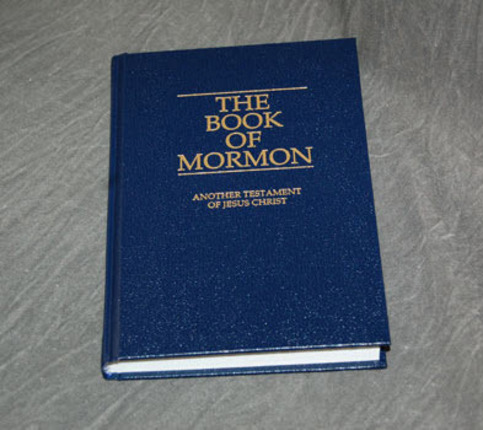
We’ve arrived in early Alma, and so, as I did for my BYU New Testament class I taught, I provide here some questions taken from the midterms and finals of the two Book of Mormon classes I taught in 2004 and 2006. Both sections covered 1 Nephi-Alma 29, but one was a freshman section and one an RM section. These exams were open-scripture, but as with the New Testament exam, open scripture certainly did not equate to easy. I wanted to test if students were reading, thinking, and able to make use of the critical-thinking and other skills we were… Read More
-
•
•
22 responses
The most upsetting thing about the story of David and Bathsheba (2 Samuel 11) is not what he did with Bathsheba, bad as that was. That he was intrigued with her is unremarkable, even natural; she was totally hot, after all. Bringing her to the palace is a different story, disgraceful even if he had only sat her down for a chat, since her husband was away at war. Even as a phenomenally successful and revered king, David displayed the priorities of a ten-year-old who’s been hanging out with bad company. I would have said “of an adolescent,” except that… Read More
-
•
•
29 responses
I’m not quite up to creating original content today, so I’m going to link and comment to a few posts and articles that caught my eye. It’s really amazing how much coverage Mormonism is getting lately compared to a few years ago. Read More
-
•
•

In the latter half of the 19th century, the principle role that New York City filled for Mormonism was as a transit point—more than 75,000 Mormon converts entered the United States through New York City during those years while several thousand missionaries sailed for Europe from New York’s port. But beginning with the Page Act in 1875 and the Chinese Exclusion Act of 1882, the U.S. began restricting immigration, beginning with Chinese and also including convicts, lunatics, and “others unable to care for themselves.” And in the late 1880s, attention on polygamy prosecution in Utah led to a provision of… Read More
-
•
•
20 responses
Ostler opens chapter 3 of The Problems of Theism and the Love of God by referring to several different individuals’ claim that the ontological commitments of Mormon theology foreclose the possibility of its embracing a defensible moral theory. Ostler then takes as his task in this chapter not only to identify what he takes to be Mormonism’s moral theory but also to argue for the possibility of such a moral theory to be fully robust despite its rootedness in a non-traditional theism. Much of the chapter is tied up in the details of an ongoing exchange between himself and Francis… Read More
-
•
•
95 responses

When we lived in La Jolla, the kids and I were members of the La Jolla YMCA. There was a child care center that would watch my little preschoolers for a couple of hours while I exercised and showered. I worked with a trainer and learned to use machines and free weights. I took aerobics, tai chi, yoga and pilates classes. My kids took swim, dance and gymnastics lessons. They went to preschool. I volunteered at the preschool, got trained and taught kids and adult yoga classes, and helped in the annual fundraising efforts that provided reduced membership and class… Read More
-
•
•

A week ago, baseball phenom Bryce Harper briefly topped twitter’s trending topics when he characterized a reporter’s question as foolish. The Toronto-based reporter had asked Harper (who, in case you don’t know, is a 19-year-old LDS player in his rookie year) if he was going to take advantage of Canada’s more liberal drinking laws (which allow drinking at 19 instead of 21) to celebrate his home run during the game, and if so, what brand of beer he would drink. Harper replied, “I’m not answering that. That’s a clown question, bro.” Read More
-
•
•
One response
Among the most beloved figures in the Book of Mormon are the four sons of Mosiah, who, after their conversion, take leave of their native land and homes and serve missions among the Lamanites. Where missionaries today serve for just a couple of years or less, the sons of Mosiah served a total of 14 years which I assume (the record doesn’t say exactly) was much longer than anyone expected. Instead, I suspect, they and their friends and family must have wondered if they would even return alive, for, after all, the Lamanites were the enemies of the people of… Read More
-
•
•
3 responses
“My father, thou art the guide of my youth” (Jeremiah 3:4). We turn to him for guidance, for help and counsel as we age and learn our own fallibilities. It is Father’s Day. Today, we recognize the important role that men play in loving and caring for children. Too often, I get caught up on a few words in the Proclamation on the Family and the idea that “fathers are to preside over their families.” It sounds distancing to me; that the father is somehow uninvolved in the day to day work of family and home life; he is, at… Read More
-
•
•
12 responses
As the sacrament was passed in the rural ward we attended today, my younger daughter looked at the deacons passing the sacrament and asked, “Why are those kids doing that?”[fn1] (My wife tells me that my older daughter noticed the same thing.) — [fn1] Just in case it’s not clear what my daughters are talking about, there is one teenage boy in our ward (but another turns 12 in a month or so!). And that’s not a significant outlier in my perhaps limited experience. So my daughters have rarely seen a bunch of 12- and 13-year-olds get up after the… Read More
-
•
•
6 responses
Fulfilling the promise of the gospel requires embodying it in concrete and active living, in a particular time and place. Since living the gospel is a social matter, this means embodying it in institutions, with design, policies, and practices that reflect and serve gospel ideals. There are particular challenges to doing this in the conditions the church finds itself in today. In this post, I continue developing the themes from Part I and Part II, considering the situation of the church in the U.S. The Church of Jesus Christ of Latter-day Saints is an international, even global church. Still, its… Read More
-
•
•
18 responses
An email I received the other day illustrates some of the most pressing questions facing our nation. How can government support individuals and voluntary associations in maintaining the strong moral underpinnings needed for a healthy society, without taking sides in a way that may ultimately be destructive? Simultaneously, how can we keep conflicts over the proper role of government (in this and other respects) from themselves destroying political community? Tony Perkins of the Family Research Council writes that the Military Religious Freedom Foundation recently “threatened a class-action lawsuit,” after which “the Pentagon conspicuously revoked approval to use the logo of… Read More
-
•
•
20 responses
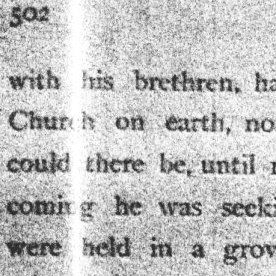
In Ensign articles and in General Conference addresses, it is not unusual to find appeals to people before 1830 who thought that Christianity had slipped into general apostasy. One of the most prominent of these is Roger Williams (1603-1683), to whom the following statement is attributed. Read More
-
•
•
20 responses
I took the two-hour drive to Idaho Falls last night to hear Greg Johnson and Robert Millet present their friendly conversation on Mormons and Evangelicals to an audience of six or seven hundred. Johnson is an Evangelical pastor who runs the Standing Together ministry in Utah; Millet is a Professor of Ancient Scripture at BYU. Together they coauthored Bridging the Divide: The Continuing Conversation Between a Mormon and an Evangelical back in 2007. Their live presentation covers some of the same ground as the book, but also takes questions from the audience. Read More
-
•
•
34 responses
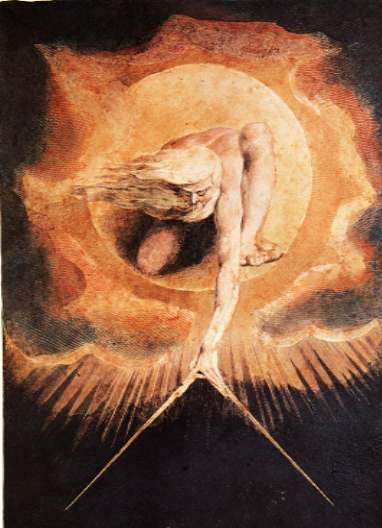
In his deservedly famous essay “Self Reliance,” Emerson suggests that just as our “creeds are a disease of the intellect” so our “prayers are a disease of the will.” Read More
-
•
•
6 responses
The gospel is a recipe for world peace. The basis for a just, harmonious, and prosperous society is implicit in the gospel as we discuss and practice it today. It is implicit, but it is a long way from becoming explicit. I made this claim in Part I of this series. In this post I will say more about what I mean by “implicit” and “explicit,” as a way of filling out the expansive content and promise of Mormonism, and the expansive context in which I want to think about its fruition, including its intellectual culture. If all of us… Read More
-
•
•
45 responses
I have been fascinated by the idea of adoption for a long time. Growing up, I knew a few people who were adopted, and the idea of bringing home your baby from Korea or the Ukraine always seemed exotic to me. But my obsession really took off when I got my Patriarchal Blessing. After gushing about the children that would be born to me, a totally out-of-the-blue paragraph began with the words, “I bless the love of your family to extend to other children . . . ” Suddenly, adoption was part of my envisioned Mormon “happily-ever-after,” and I embraced… Read More
-
•
•
23 responses
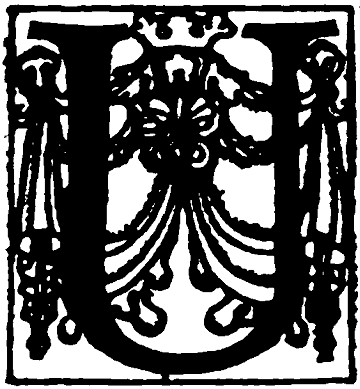
Let’s say you’re attending a hypothetical graduate program in Mormon Studies at a hypothetical Mormon U. What kind of classes do you want to take? History? Theology? Literature? Sociology? Etc? Read More
-
•
•
3 responses
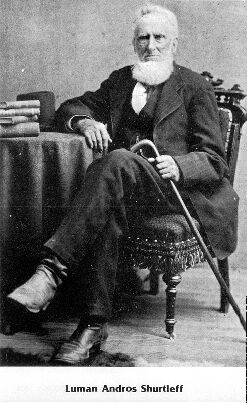
One of the most stunning acts of persecution in the scriptures has to be the attack on the believers in Ammonihah described in Alma 14. Those who have heeded the words of Alma and Amulek, men, women and children, are taken by the mob, bound and cast into fire, along with their scriptures while Alma and Amulek are forced to watch. In consternation, the missionaries face the problem of evil in a very personal and immediate way and Alma is constrained by the spirit not to intervene. Read More
-
•
•
20 responses
-
•
•
29 responses

The Lord is my Goatherder, I don’t want him; he hauls me up the mountain; he drags me down to the beach. Surely we all recognize the 23rd Psalm there, from the infamous first translation into Tlingit. Sounds a bit off, doesn’t it? Read More
-
•
•
51 responses
In a Newsroom piece on issues related to homosexuality, Elder Oaks quotes President Hinckley as saying: Read More
